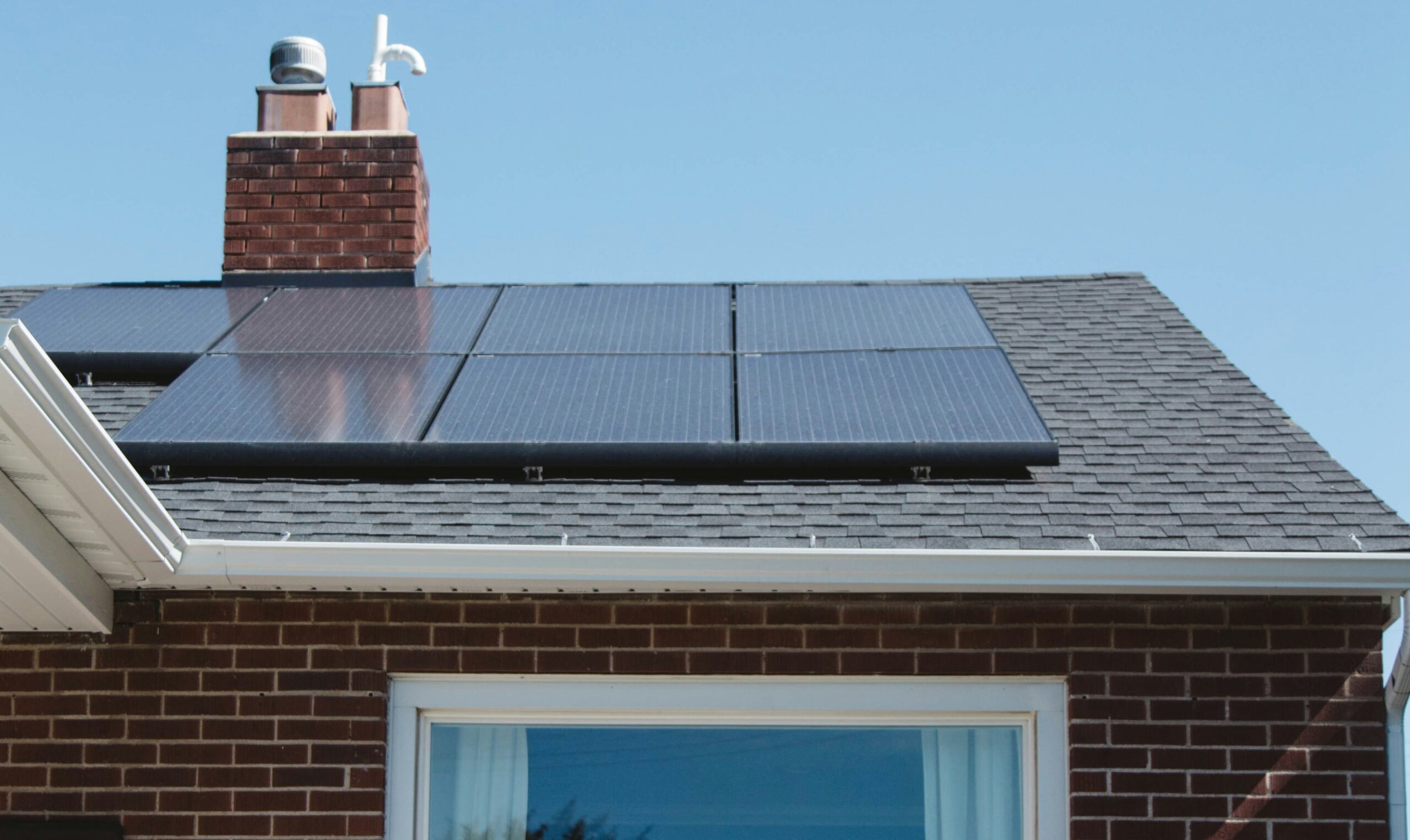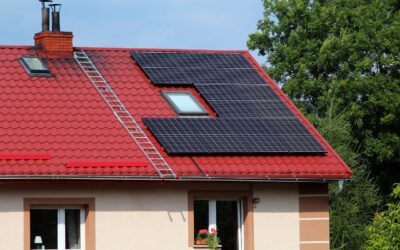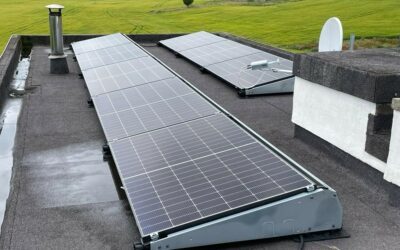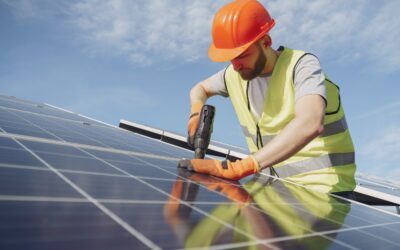Discover how residential solar panel systems can transform your home’s energy consumption, reduce electricity bills, and contribute to a greener future.
As the world shifts towards sustainable energy solutions, these systems have become an increasingly popular choice for homeowners.
They offer numerous benefits, from reducing energy bills to minimising carbon footprints.
This guide will explore the different types of home solar solutions available, their benefits, the installation process, and maintenance requirements.
Home solar power systems are designed to harness the sun’s energy and convert it into electricity for home use. With advances in technology and the increasing affordability of solar panels, more homeowners are considering solar energy as a viable alternative to traditional power sources.
Types of Home Solar Solutions
Grid-Tied Systems
These systems are connected to the local utility grid. They allow homeowners to use solar power when the sun is shining and draw from the grid when it’s not.
Benefits include lower initial costs, the ability to sell excess energy back to the grid, and no need for battery storage.
Off-Grid Systems
These systems operate independently of the local utility grid and require battery storage to store excess energy for use during non-sunny periods.
Benefits include complete energy independence and reliability in remote locations without grid access.
Hybrid Systems
Combining the features of both grid-tied and off-grid systems, hybrid systems use battery storage but can also draw from the grid when necessary.
Benefits include increased energy security, reduced reliance on the grid, and the ability to store excess energy.
Advantages of Residential Solar Energy
There are many positive aspects of solar panels, some of which are listed below. However, there are some drawbacks to solar energy production that are covered in the guide you will find here.
Cost Savings
Solar panels can significantly reduce or even eliminate your electricity bills. Over time, the savings can offset the initial investment in the system.
Many regions offer incentives, rebates, and tax credits that can further reduce the cost of installation.
Environmental Impact
Solar energy is a clean, renewable resource that reduces greenhouse gas emissions and reliance on fossil fuels.
Installing solar panels contributes to a reduction in carbon footprint and promotes sustainable living.
Energy Independence
Solar panels provide homeowners with a degree of energy independence, protecting them from rising energy costs and power outages.
Off-grid and hybrid systems enhance this independence by reducing or eliminating dependence on the local utility grid.
The Solar Installation Process
For a detailed, step-by-step guide on the installation process, including initial consultation, design and engineering, permitting and documentation, procurement of materials, installation, inspection and testing, and finalisation and handover, please refer to our in-depth articles on the solar panel installation process.
Initial Consultation
Assess your home’s energy needs, roof condition, and potential shading issues.
Create a customized solar solution tailored to your specific requirements.
Design and Engineering
Develop a detailed system design, specifying the type and number of panels, inverters, and other components.
Ensure efficiency, aesthetic, and structural integrity.
Permitting and Documentation
Acquire the necessary permits and complete required documentation.
Work with local authorities to ensure compliance with building codes and regulations.
Installation
Mount the panels, set up inverters, and connect the system to your home’s electrical panel.
Ensure everything is installed correctly and safely by skilled technicians.
Inspection and Activation
Inspect the system by local authorities and test to ensure it operates correctly.
Once approved, activate the system and start generating solar power.
Maintenance of Solar Panel Systems
Maintenance of solar panel systems are vital to ensure the best performance. Click here to get more details.
Regular Cleaning
Keeping the panels clean from dust, debris, and bird droppings is essential for maintaining their efficiency. Regular cleaning, especially after adverse weather conditions, ensures optimal performance.
Monitoring System Performance
Most modern systems come with monitoring software that allows homeowners to track energy production and identify any issues promptly.
Professional Inspections
Periodic professional inspections help identify potential problems early and ensure the system continues to operate efficiently. Technicians can check for issues like loose connections, inverter problems, and other technical faults.
Solar Panel System Costs & Savings
The average domestic solar panel system costs between £9,000 and £10,000 for a 4kW system, including installation. Costs depend on the type of panels, wattage, and manufacturer.
Adding solar battery storage can bring the total to between £12,500 and £14,000. This allows you to store excess energy and use solar power at night, increasing overall savings.
| 1-2 Bedroom | 2-3 Bedrooms | 4-5 Bedrooms | |
|---|---|---|---|
| System Size | 2 – 3kW | 3 – 4kW | 5 – 6kW |
| System Cost | £5,000 – £8,000 | £7,000 – £10,000 | £11,000 – £13,000 |
| Annual Savings | £440 | £660 | £1,005 |
| SEG Payment * | £41.25 | £38.50 | £55 |
| Break-Even Point | 17 years | 14 years | 12 years |
What is the SEG Payment?
The SEG payment refers to the Smart Export Guarantee. This UK government scheme allows homeowners to sell excess electricity generated by their solar panels back to the national grid. This provides an additional income stream and can significantly improve the return on investment for residential solar panel systems.
Are Solar Panels Worth the Investment?
For the average UK home, residential solar panels can cover 117% of electricity demand in perfect conditions.
A typical 3-bedroom house with a 4kW system can save around £660 annually.
Over 25 years, homeowners could save £16,500, breaking even after 14 years and resulting in lifetime savings of £7,260.
Grants and Financial Incentives
In the UK, several schemes can help reduce the cost of solar panel installations.
From April 2022, 0% VAT applies to all energy-saving materials, including solar panels and batteries, saving the average home £2,300.
The Smart Export Guarantee (SEG) allows you to sell surplus energy back to the grid, potentially saving up to £700 annually for a medium-sized home with a 4kW system and battery storage.
The Energy Company Obligation Scheme (ECO4) offers low-income households the chance to replace inefficient heating systems with more efficient, environmentally friendly systems.
Efficiency and Seasonality
Domestic solar panels in the UK are 15-24% efficient, similar to the global average. High-efficiency panels can exceed 22%.
Despite the UK’s cloudy weather, solar panels can still reduce energy bills and carbon emissions.
Even during winter, panels can power 33-51% of a home’s energy needs.
Excess rain can help clean the panels, maintaining their efficiency.
Conclusion
Residential solar PV systems offer a sustainable and cost-effective solution for homeowners looking to reduce their energy bills and environmental impact. By understanding the different types of systems, the installation process, and maintenance requirements, you can make an informed decision about integrating solar energy into your home.
As technology advances and the world increasingly turns towards renewable energy, investing in a residential solar panel system is a step towards a greener, more sustainable future.
Get in touch with us to arrange a no-obligation consultation

About Stuart Munro
Stuart Munro, Director of i-Protech Technology and i-Protech Renewables Ltd, has almost a decade of expertise with renewable energy. Stuart has solidified i-Protech’s stature as a leader in solar energy and battery storage solutions. His commitment to renewable technologies has not only advanced the company’s portfolio in electrical and security systems but also underscored his dedication to environmental stewardship.





